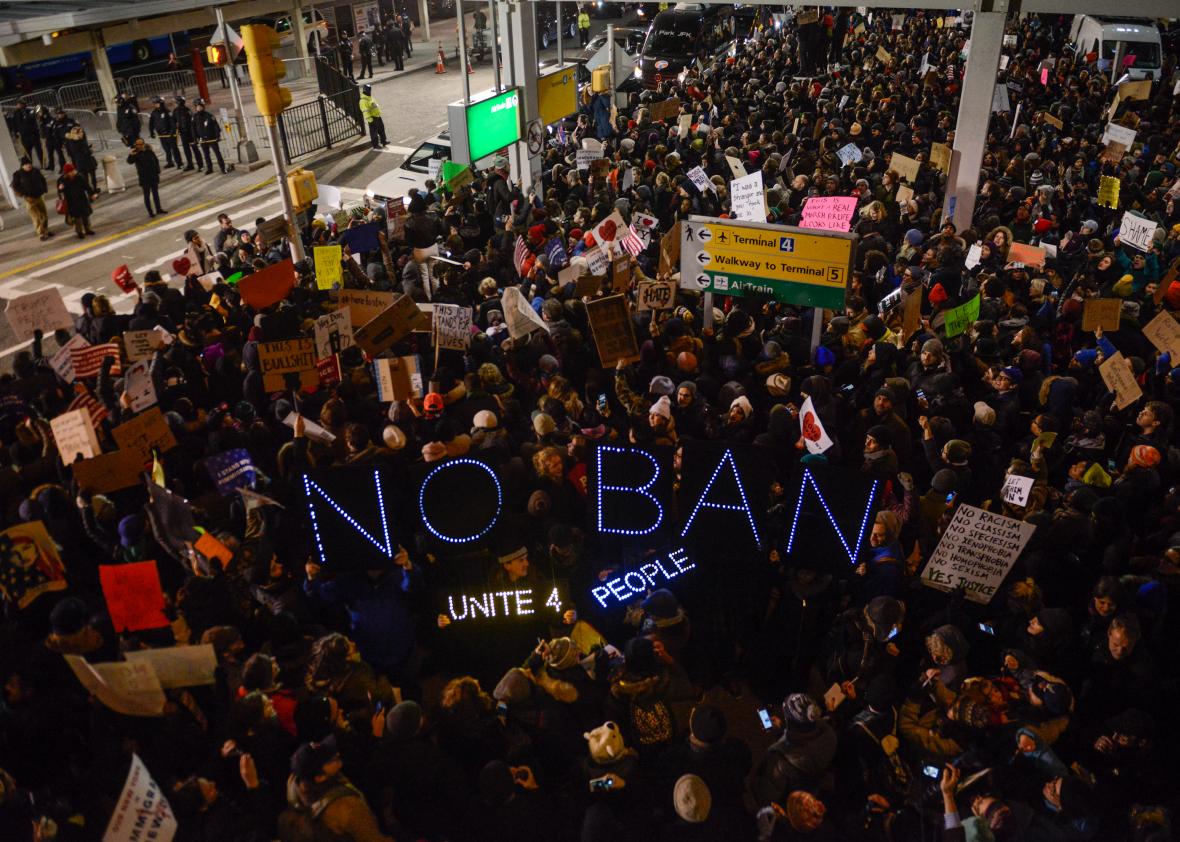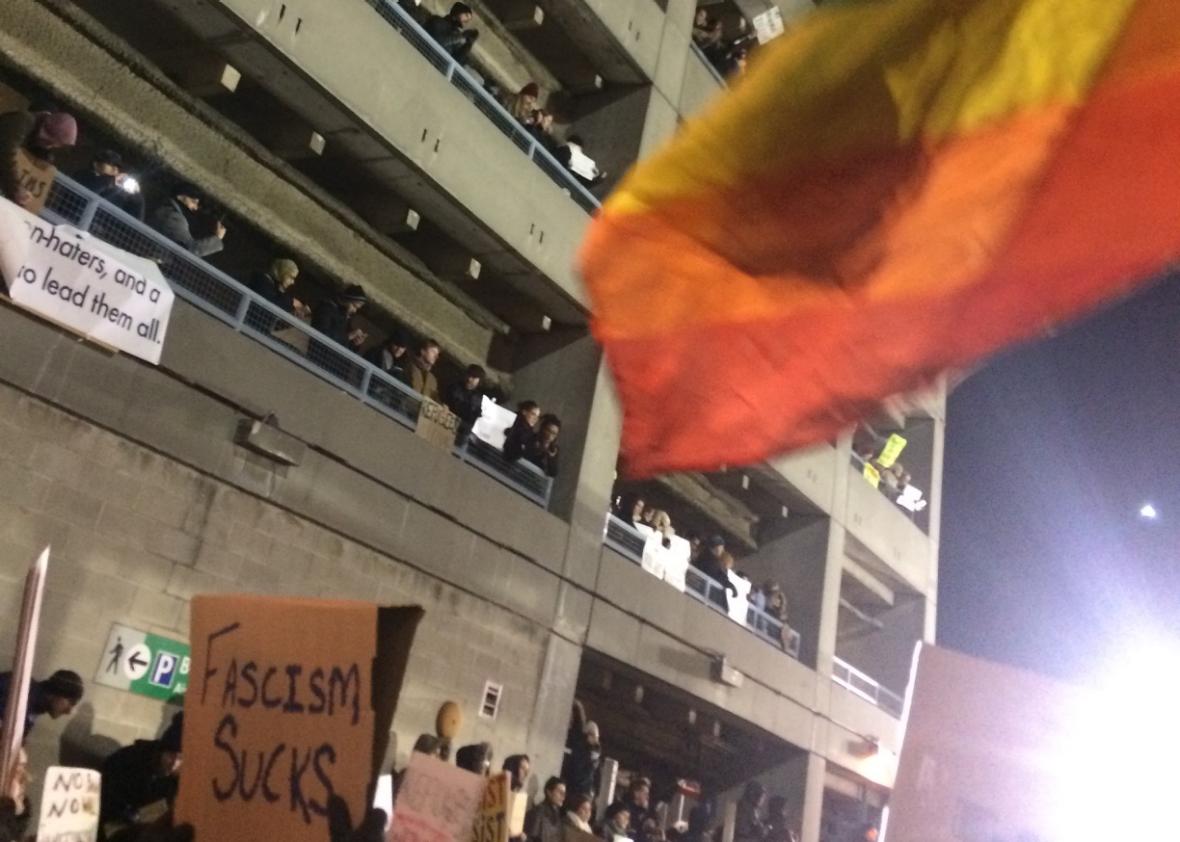On Friday, Donald Trump signed an executive order barring people from seven Muslim countries—Iran, Iraq, Libya, Sudan, Syria, Somalia, and Yemen—from coming to America. His administration didn’t bother issuing guidance about what should happen to people from the banned nationalities who were already in route with valid visas or green cards. On Saturday, people who’d been legally authorized to travel to the U.S. when they boarded their flights found themselves treated like criminals when they disembarked. At least 12 people were detained at New York’s John F. Kennedy Airport, though one of them, Hameed Khalid Darweesh, an Iraqi translator who worked with U.S. forces for a decade, was eventually released after 19 hours in custody.
“We have been contacted today by dozens and dozens of refugees, of people whose lives are in danger because they worked as interpreters for the U.S. military, of husbands trying to reunite with wives,” said Becca Heller, director of the International Refugee Assistance Project. These people, she said, “were given visas to the United States after extensive vetting, put on a plane and promised refuge, and then landed and put in handcuffs.”
Saturday afternoon, hundreds of protesters massed outside the international arrivals terminal at JFK, demanding the release of the detainees. “Racists out, refugees in!” they shouted. Inside, two members of Congress from New York, Nydia Velazquez and Jerry Nadler, worked to free another detained Iraqi, Haider Sameer Abdulkhaleq Alshawi. He was on his way to join his wife, a former employee of a U.S. contractor in Iraq. “When you get off the plane, you show your documents, and they grab you,” Nadler told me. “I think the whole thing is terrible, stupid, ridiculous. And why those seven countries? Why not Saudi Arabia?”
Frightened people waiting for family members to arrive from abroad milled around in the terminal, hoping for news about their relatives. A man carrying a newspaper-wrapped bouquet of roses huddled with a lawyer; when I approached he stepped back, terrified. “The lawyers here today at the airport can’t get behind security to talk to the Department of Homeland Security about the detainees,” the lawyer, Mitra Anoushiravani, told me. “What I’ve been told to do is to talk to families that are coming into the arrivals section to meet with their relatives. If their relatives don’t come through, we get their names.”
By evening, the protests grew to thousands, sprawling onto the roof of a nearby parking garage.
The New York Taxi Workers Alliance, a 19,000-strong union, announced a one-hour work stoppage at JFK in protest of the ban. Other protests broke out at airports nationwide. “Dozens and dozens of people remain in airport detention throughout the country, simply because they were unlucky enough to have gotten on a place the day that President Trump signed the executive order,” said Heller.
Trump appeared pleased by how things were going. “It’s working out very nicely,” he told reporters at the White House. “You see it at the airports, you see it all over.” You do indeed.
3 WAYS TO SHOW YOUR SUPPORT
- Log in to post comments













